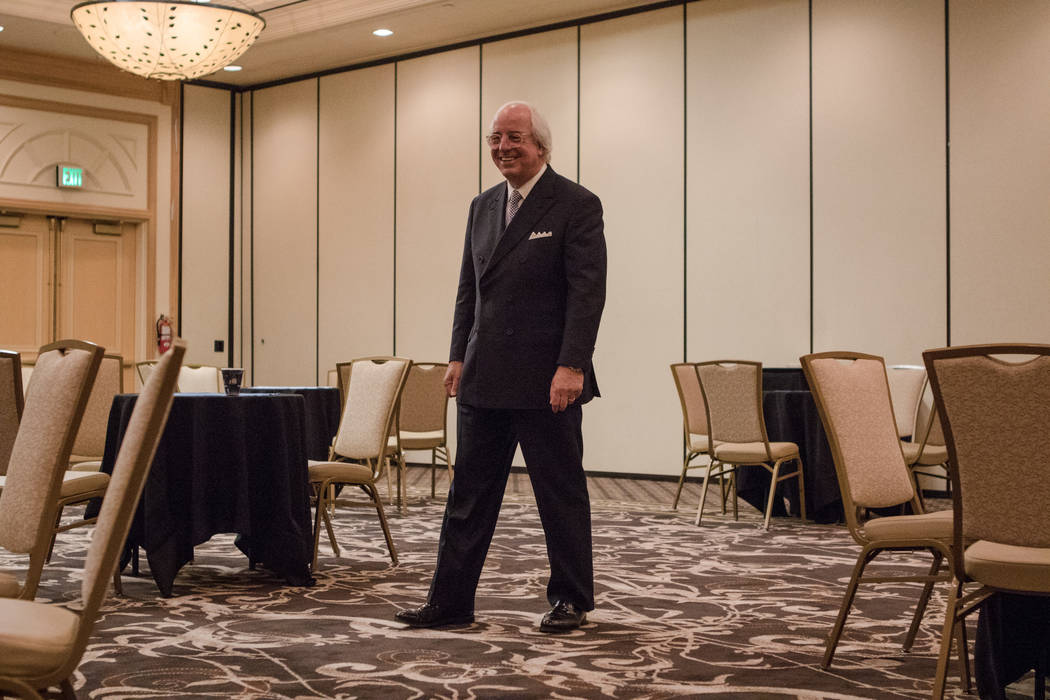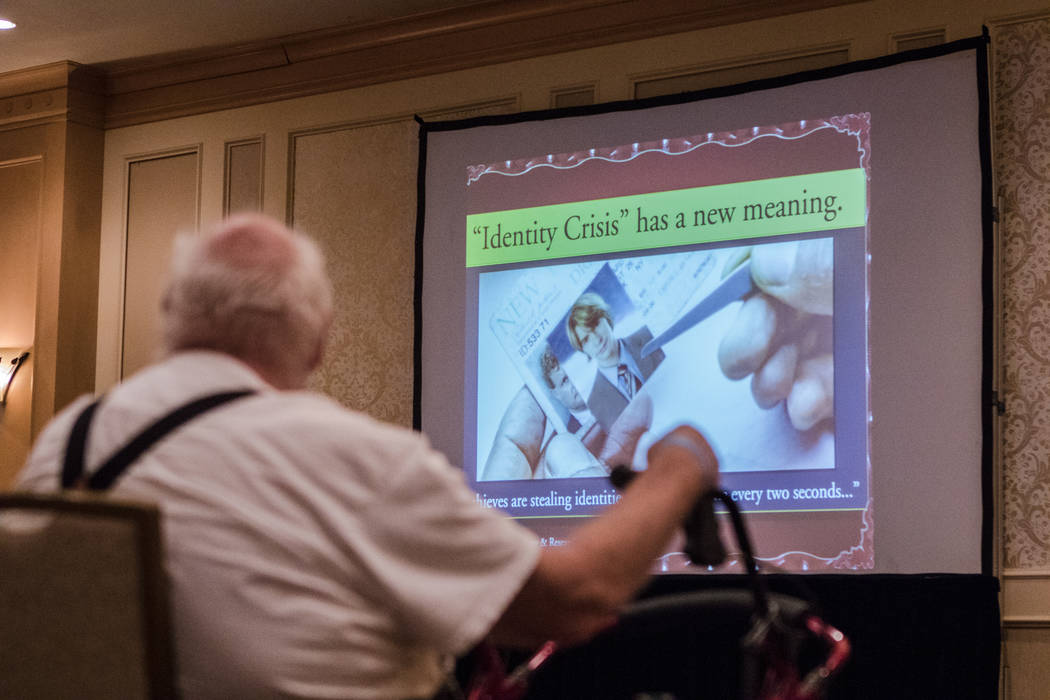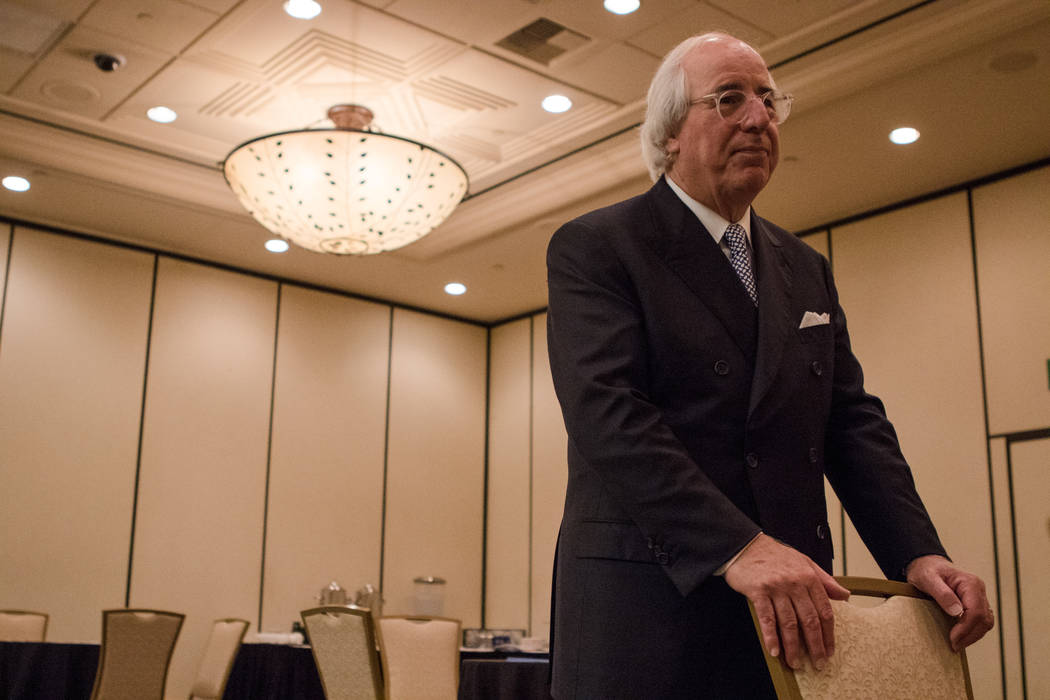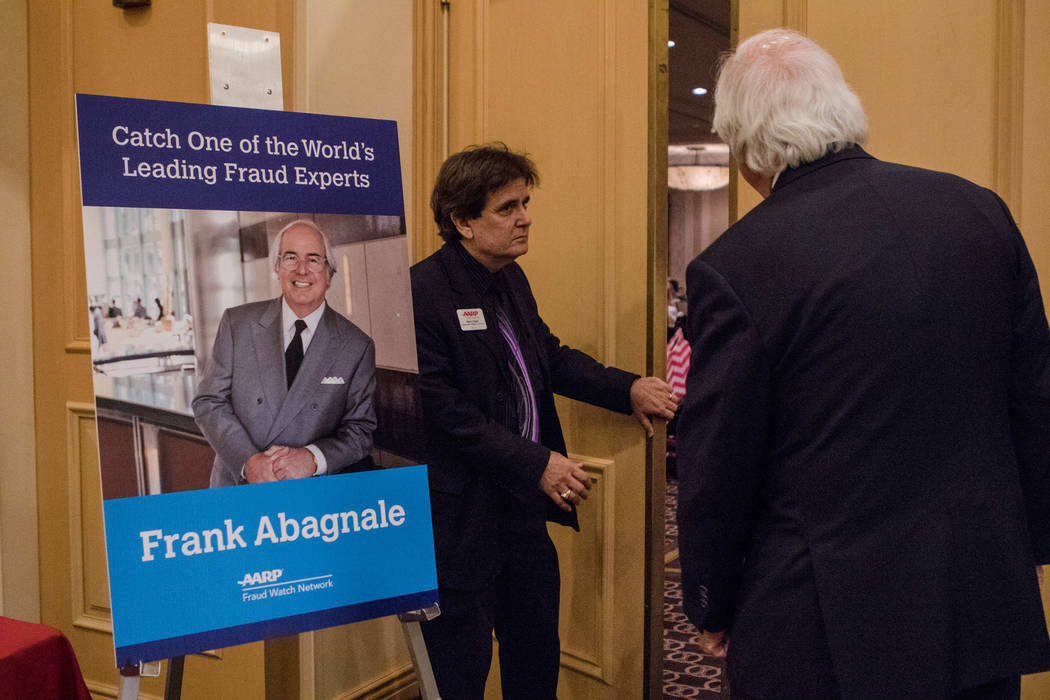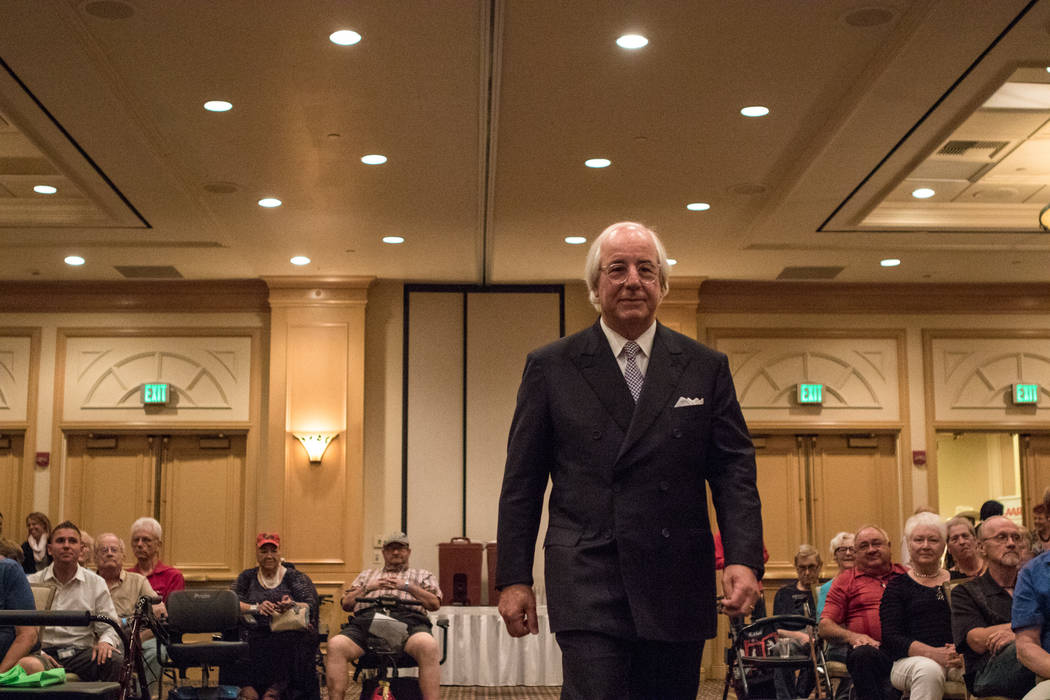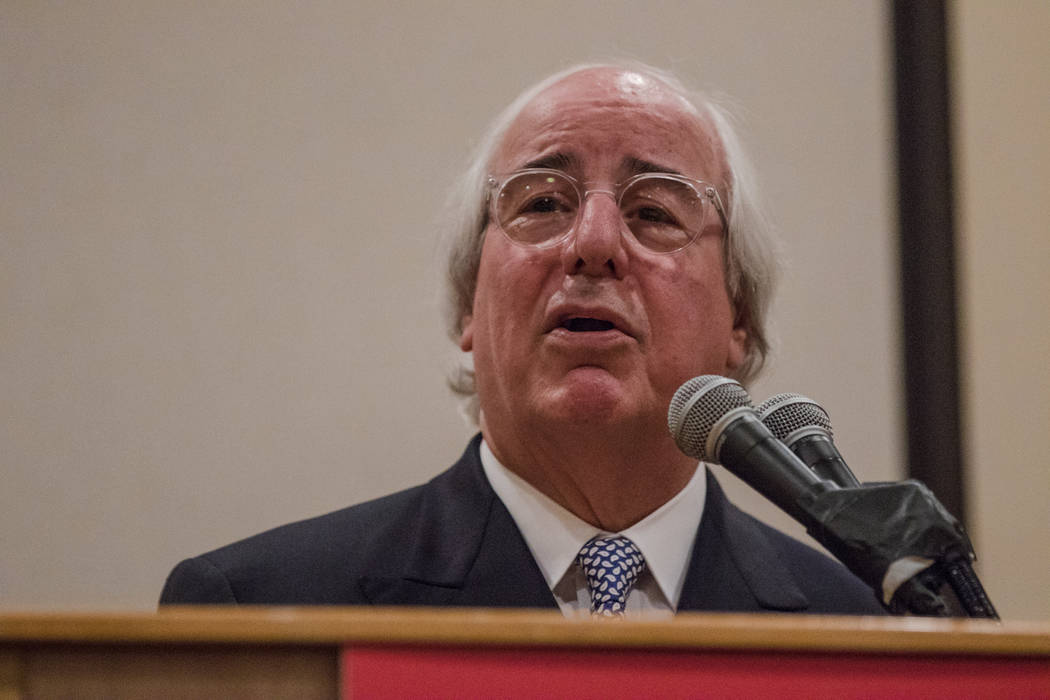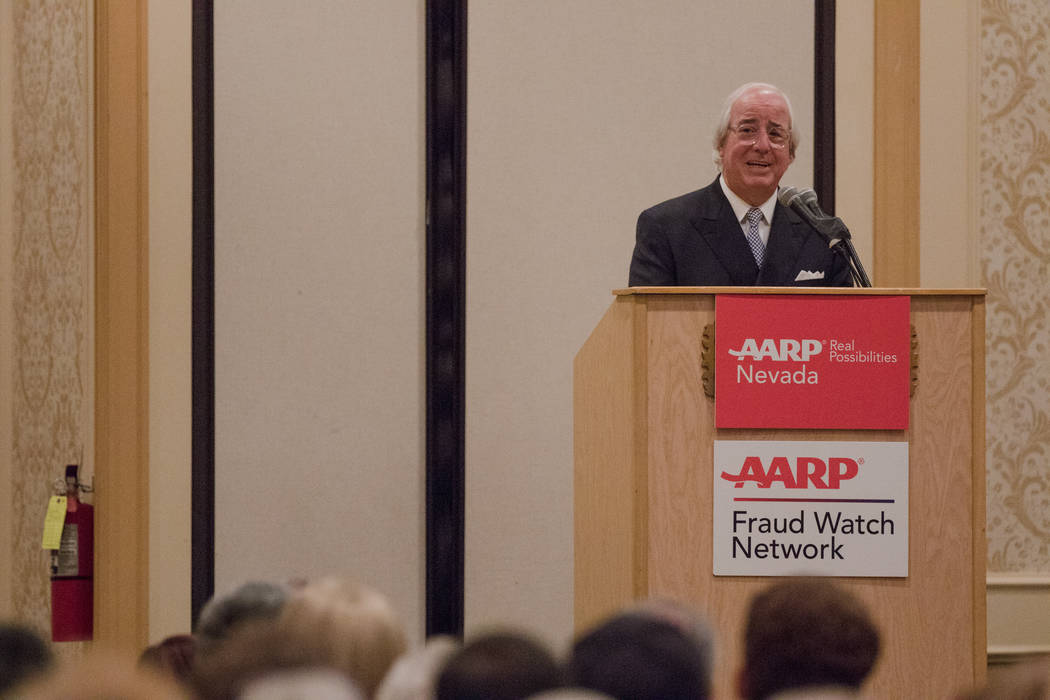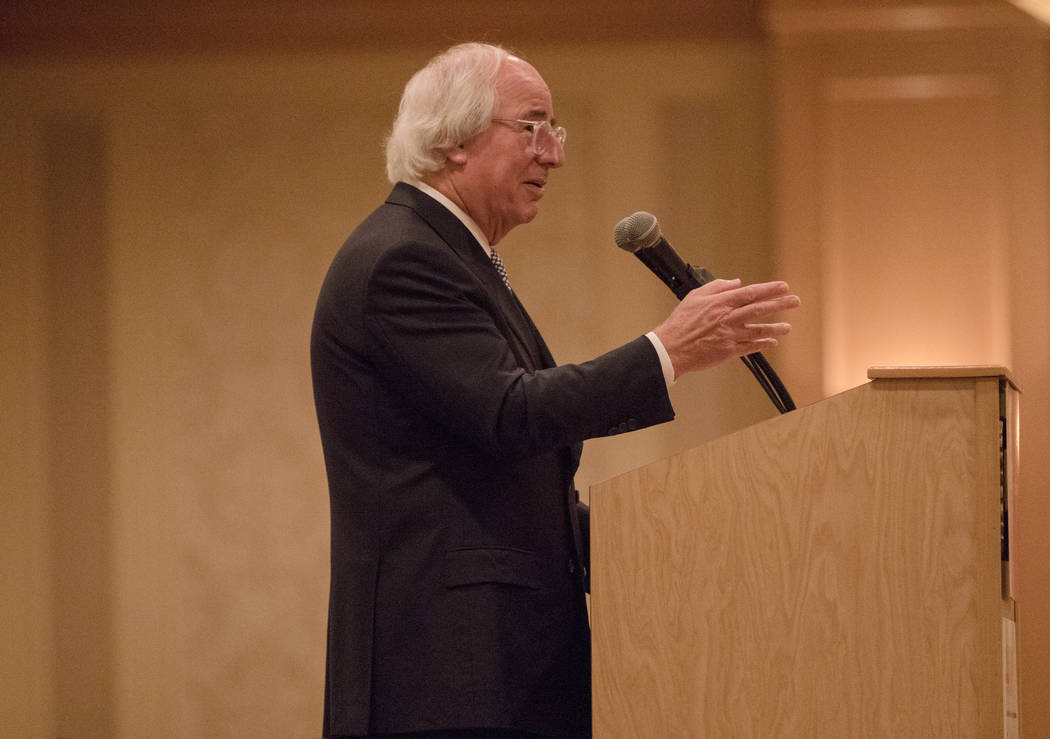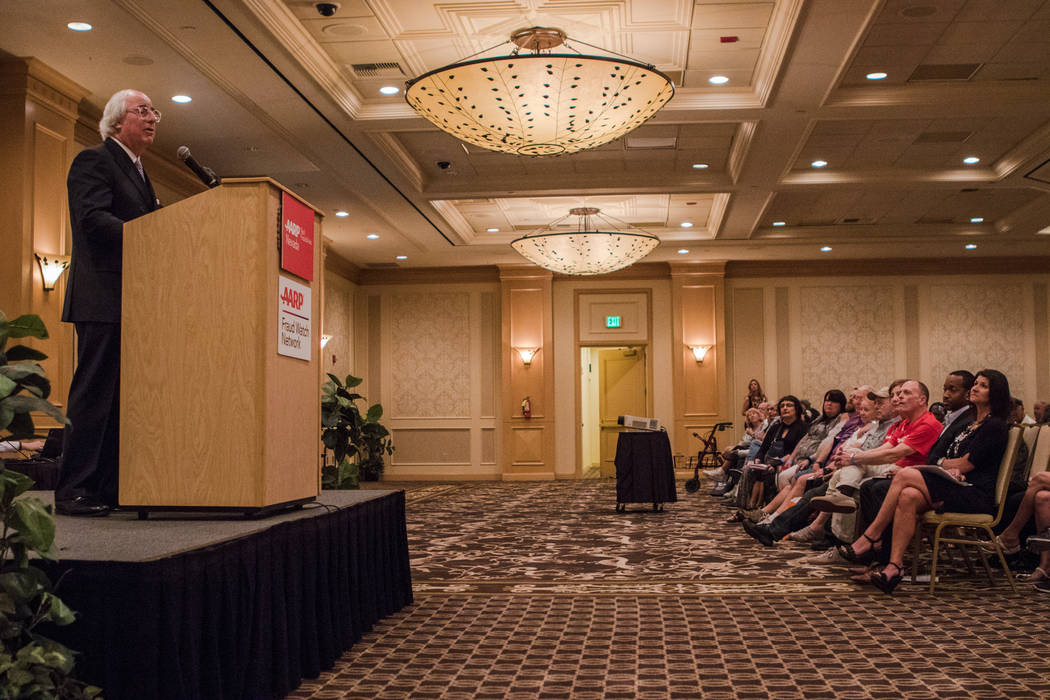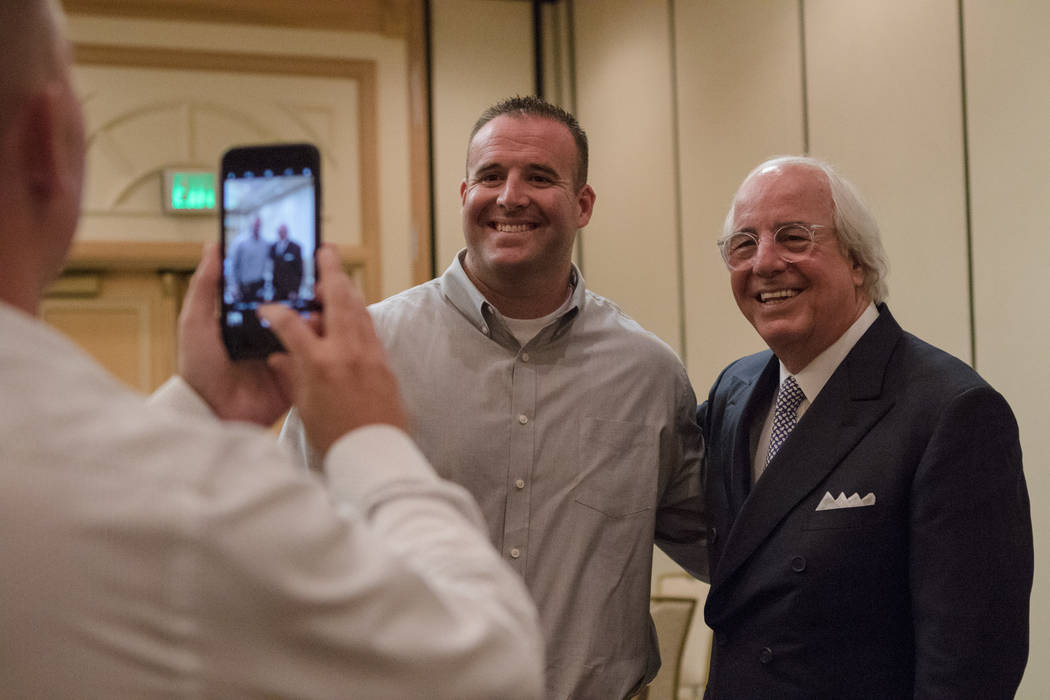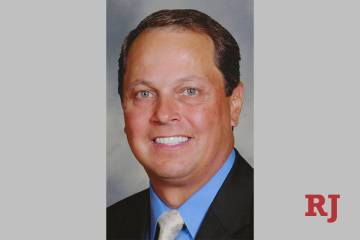Stop personal social media posts, ex-impostor pleads in Las Vegas
Killing time before his speech on identity theft Thursday, Frank Abagnale won money at a “Monopoly” slot machine.
While other tourists would’ve focused on their winnings, Abagnale instead thought about the bar code on his cashout voucher, what sort of information a hacker could learn about a casino.
It’s that mindset from Abagnale, whose time as a check forger and impostor inspired the 2002 movie “Catch Me If You Can,” that’s led to decades of work advising law enforcement, companies and individuals on avoiding financial fraud.
“You play chess,” Abagnale said before the talk at Gold Coast. “And the people I work with say, I need him to tell me where the weakness is.”
A regular speaker at Las Vegas conventions, Abagnale’s Gold Coast appearance was part of an AARP program on identity theft education.
Abagnale, 69, told the crowd of about 800 to charge everything to a credit card, shred papers with a device that makes microcuts and consider a paid credit monitoring service.
Above all: Stop publishing personal information on social media.
“We complain about our identity being stolen, but we continue to give out more information,” he said.
With 143 million Americans’ personal information exposed by a hack into credit monitor Equifax, everyone in the room should assume someone has their identity, he said.
While thieves need to use and lose credit card numbers quickly, they will wait years before using something like a Social Security number. By that time, people will forget about the hack.
If the Social Security number belongs to a young person, their income is likely to grow the longer a thief waits, he said.
In the latest annual Federal Trade Commission report, Nevada ranked fifth for fraud complaints and ninth for identity theft complaints. Last year, Nevada ranked 21st for identity theft complaints.
The state saw a total of 29,629 complaints of identity theft, fraud and other consumer complaints in 2016.
In an interview before his speech, Abagnale said the concepts behind conning people remain the same from his days of impersonating a pilot and a doctor. All that changes are the tools.
Decades ago a thief would have to read a newspaper or go to a courthouse to collect someone’s personal information, but documents from both groups are accessible online worldwide.
In his current life as a security consultant based in Washington, D.C., Abagnale advises companies to keep their repository of customer data light and get rid of data as soon as possible to avoid liability.
He’s troubled by the business trend of connecting all consumer goods to the internet, increasing the risk of hacking, he said.
“It’s all social engineering,” he said. “There will never be technology to defeat that.”
Contact Wade Tyler Millward at wmillward@reviewjournal.com or 702-383-4602. Follow @wademillward on Twitter.




